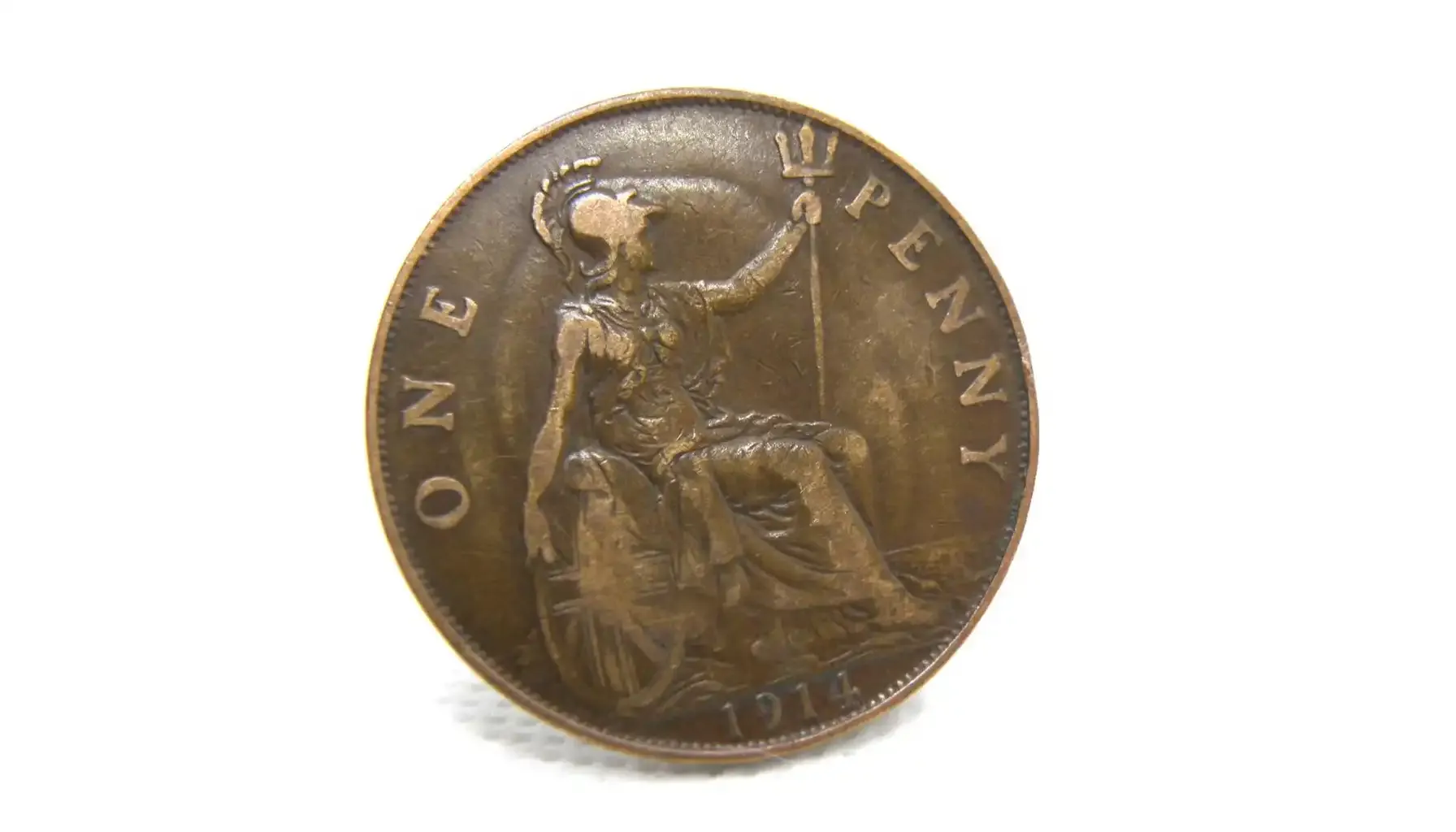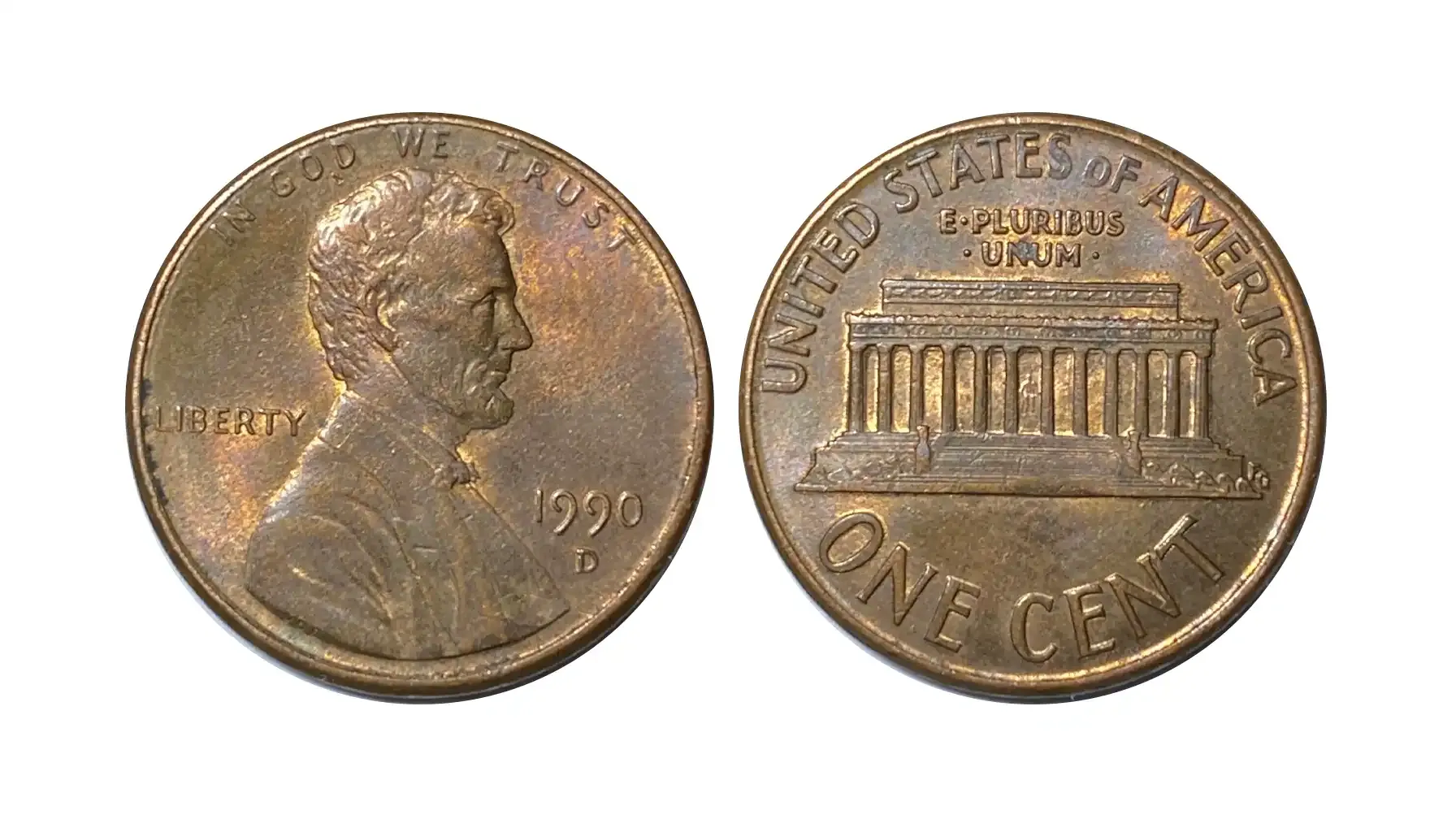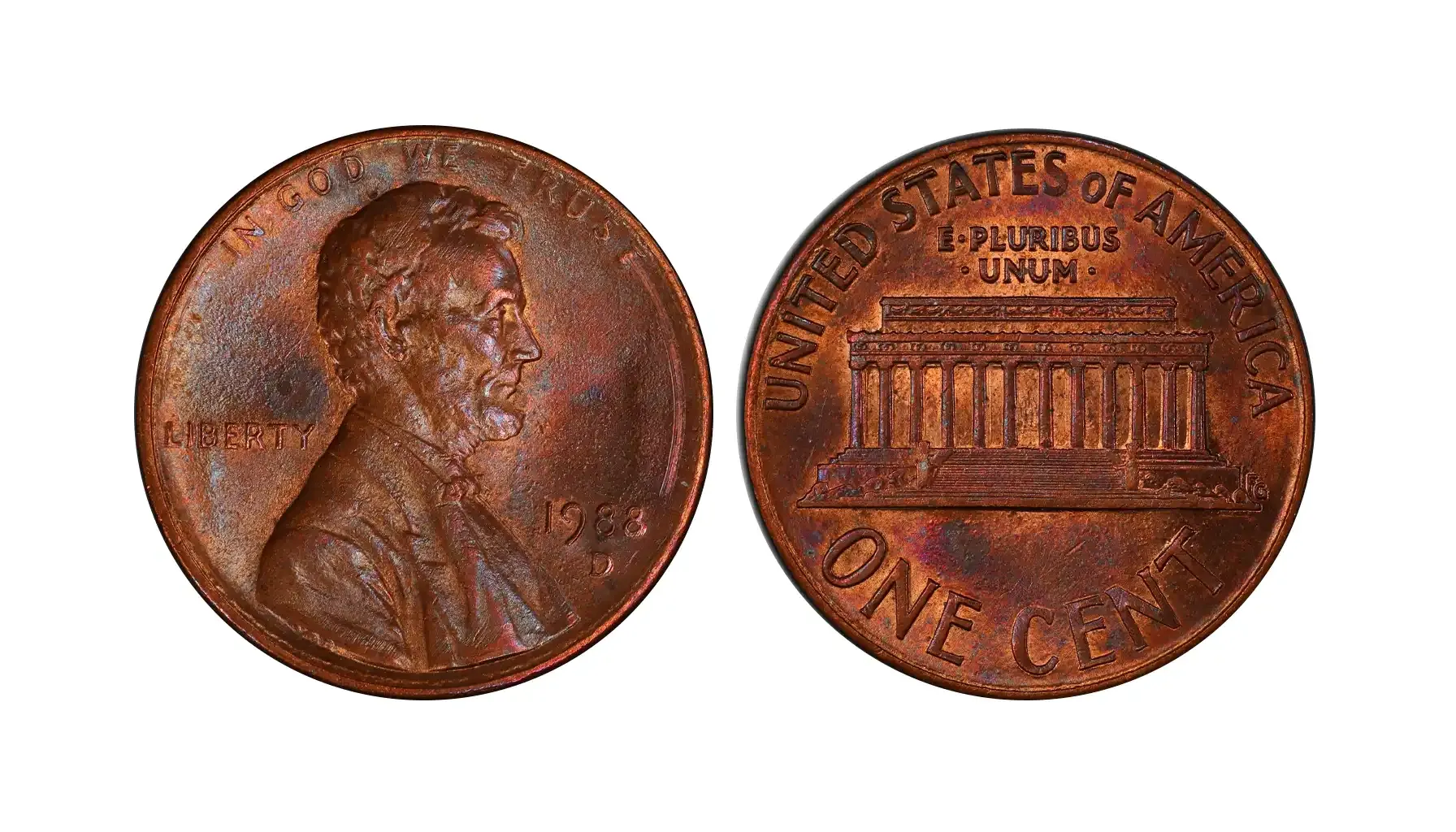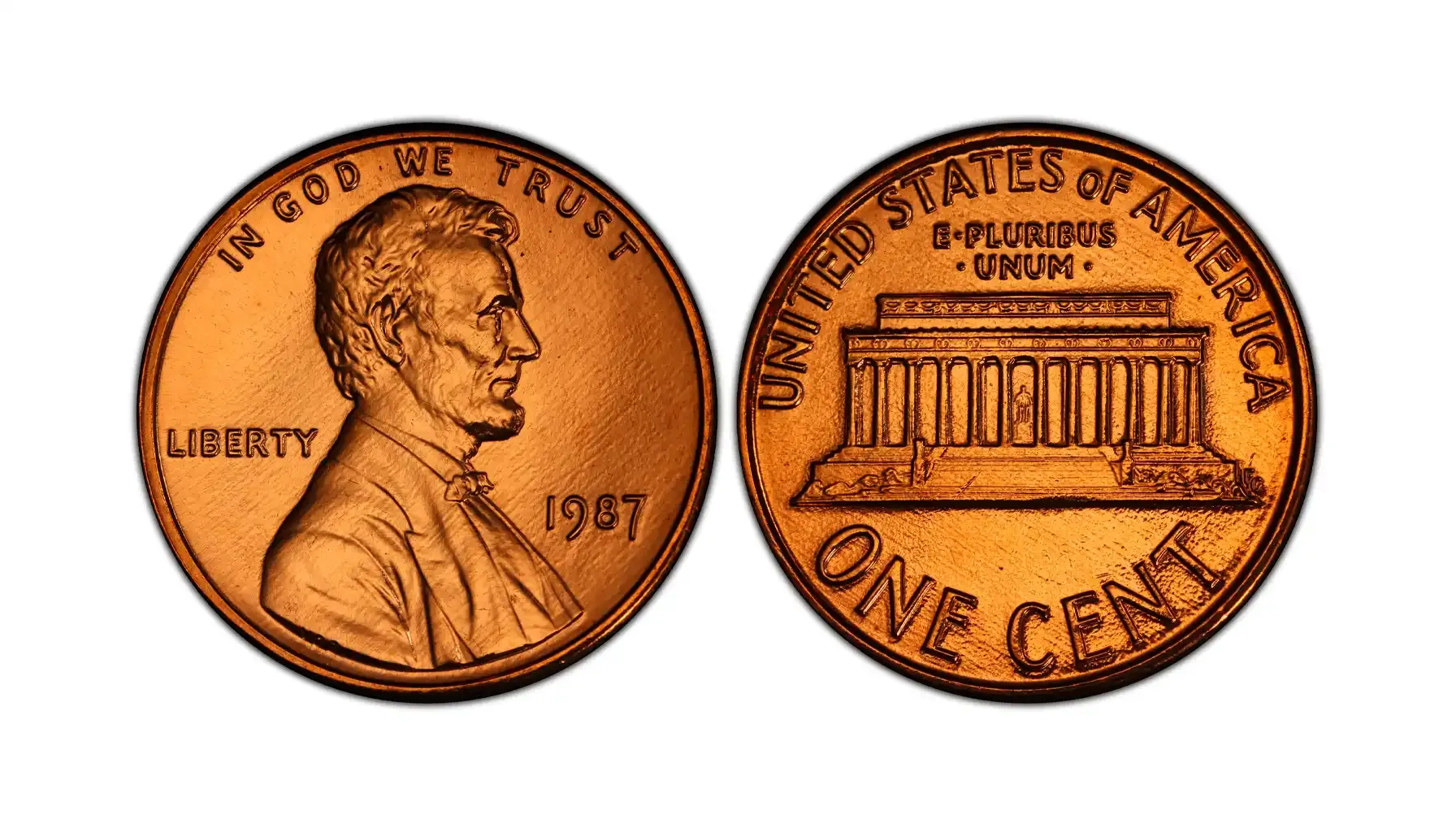Contents:
What can you buy with 1 cent? A small candy, a piece of gum or a plastic bag - honestly not much. Is a 1914 penny worth anything? And what if the value of 1914 penny can be tens or hundreds of times its face value?
Think you're hard to surprise with little things and little coins, and you know all about the common penny? Well, 1914 Lincoln penny value at first glance seems insignificant, but do not rush to conclusions. Some pieces today sell for thousands of dollars - especially when it comes to 1914-D Lincoln Wheat penny value.
Want to know how much is a 1914 penny worth, what influences the price, and why is the 1914-D penny worth so much in some cases? You're in the right place, because today we're going to discuss which varieties are really rare, how to tell them apart, and how much the 1914-D Lincoln penny is worth. And to avoid doubting the details and facts, use a free coin identification tool, but first things first.
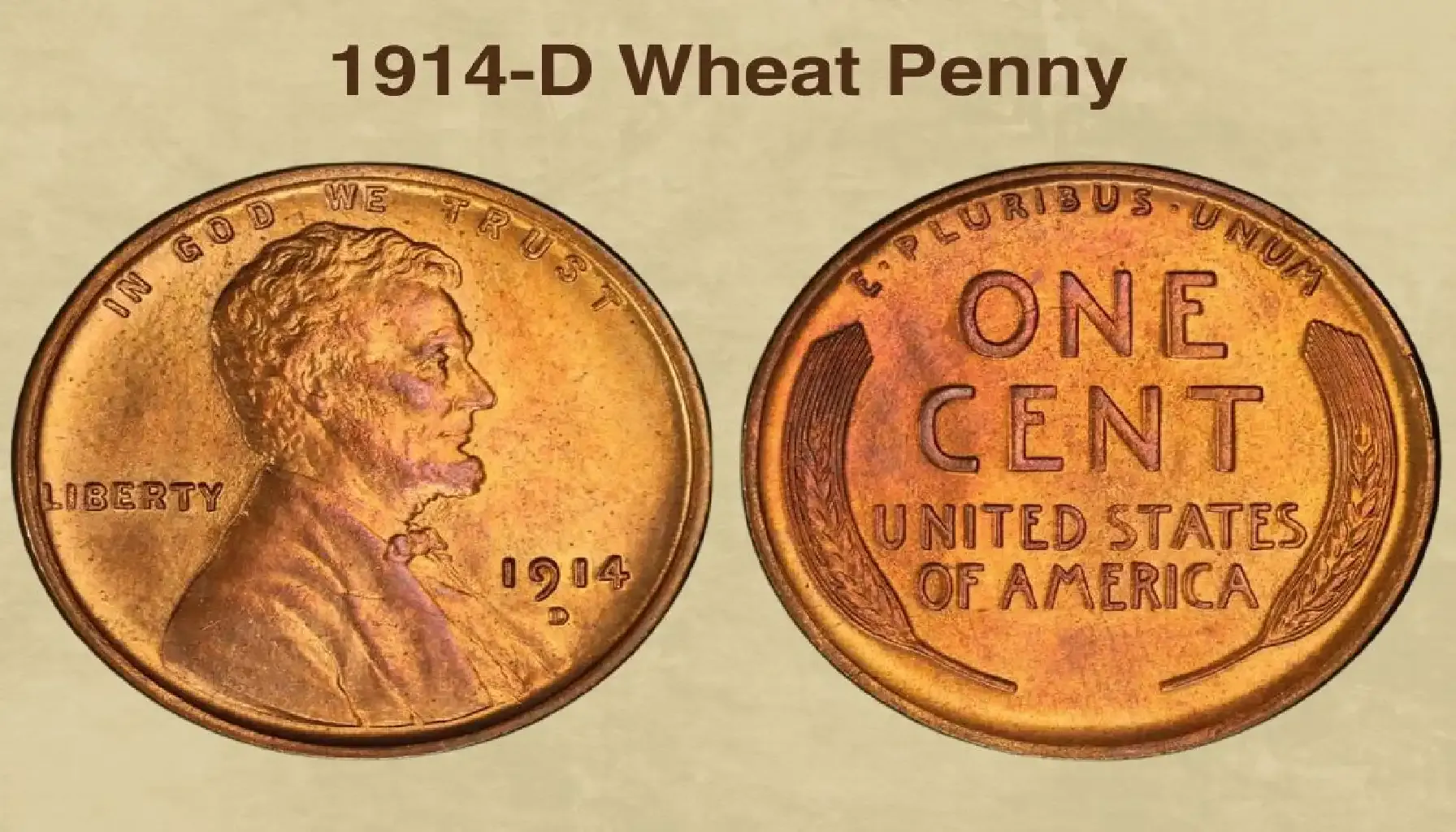
History and Meaning of 1914 Penny D
Why 1914?
The year 1914 was a notable point in the history of U.S. coinage. The United States was entering a period of instability: the First World War began, domestic economic pressure intensified. This affected coin production as well. The total output of pennies remained high, but their distribution between mints was uneven:
Philadelphia produced the bulk of its examples without a mint designation;
San Francisco limited itself to a moderate mintage of about 4.1 million pieces;
Denver produced only 1,193,000 pieces, one of the lowest mintages in the series.
This limited availability made a 1914 D Lincoln penny a real find for collectors. How much is a 1914 D penny worth? Today it is one of the most wanted coins of the early 20th century.
1914 D penny value today in good condition can reach $1,500 and up. That is why the 1914 D Wheat penny value from Denver is still steadily increasing at auctions and in private sales.
Other Varieties
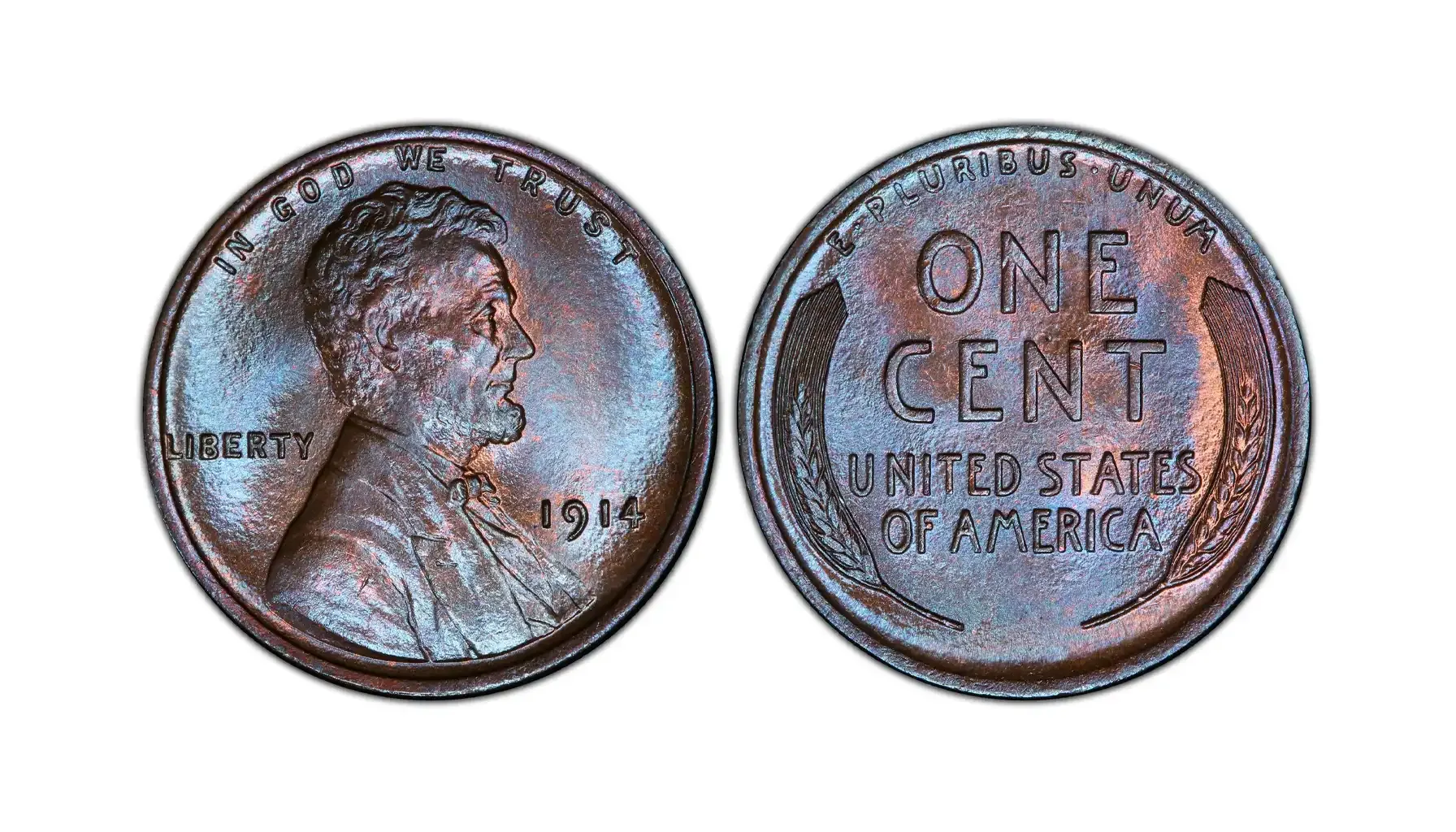
1914 Wheat Penny No Mint Mark
Philadelphia pennies were issued without mint marks and are most commonly found today. However, in excellent condition, even such specimens can be worth a lot - especially if the color is Red or Red Brown.
1914 Wheat penny value no mint mark, depending on condition, can be priced in the tens or even hundreds of dollars. This makes the 1914 no mint mark penny an interesting find for collectors, especially if the coin has not been cleaned or restored.
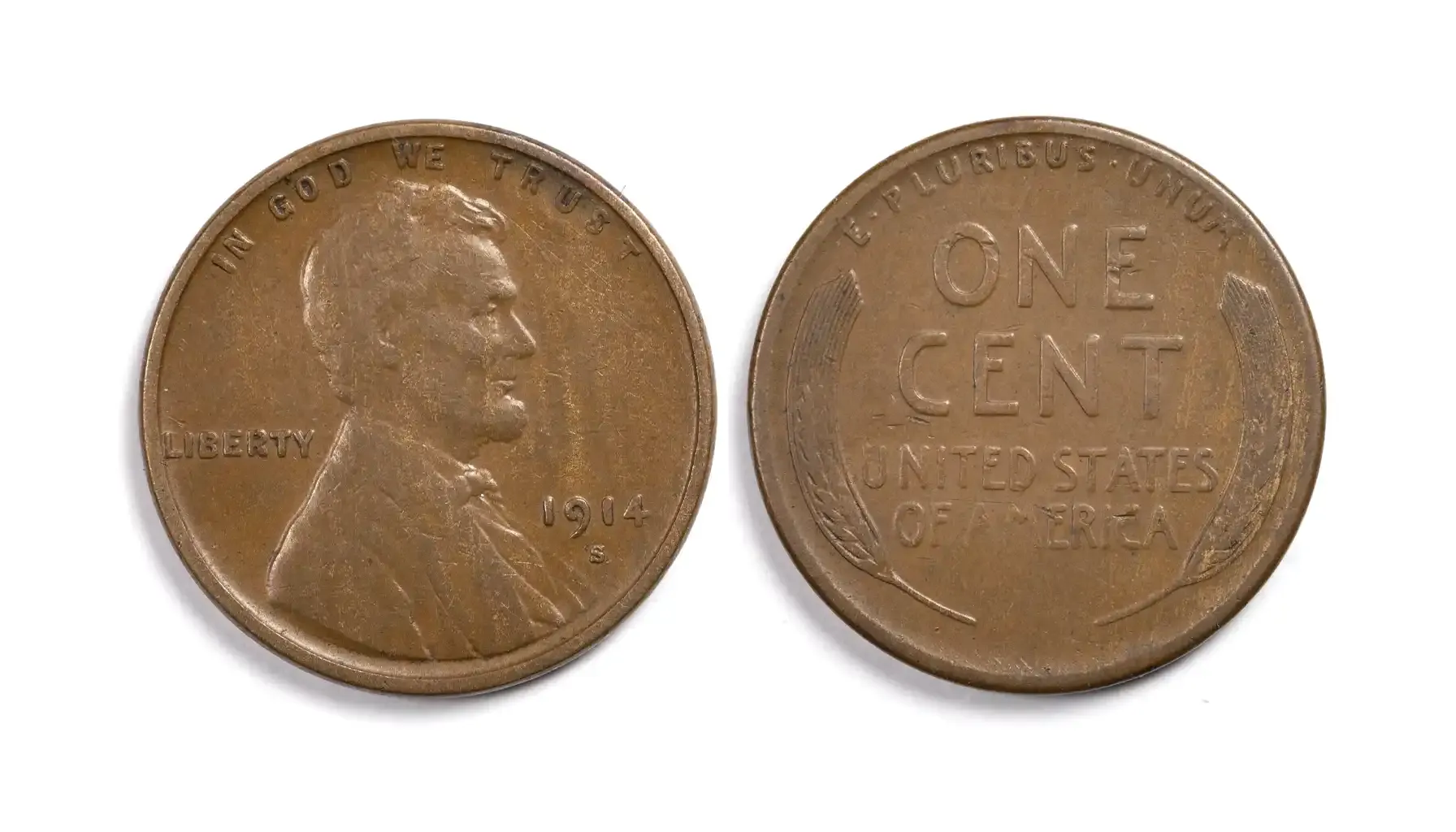
1914-S Lincoln penny (San Francisco)
S-marked coins are less common than Philadelphia ones, but more frequent than Denver examples. They have a mintage of approximately 4,137,000 pieces.
1914 S Wheat penny value is consistently high in VF (Very Fine) condition and above. Many collectors specifically seek out this piece to collect the complete series by year and mint.
Main Characteristics of 1914 Lincoln Wheat Pennies
Title | Significance |
Designer | Victor David Brenner |
Name | Lincoln Wheat Cent |
Material | 95% copper, 5% zinc and tin |
Weight | 3.11 grams |
Diameter | 19 mm |
Edge type | Smooth |
Color | Ranges from reddish brown to dark. Color affects value: red coins are valued the highest. |
Mint Marks | D, S or no |
The rarest variant | 1914-D penny value of which is the highest |
Gradation | G4 to MS65 Red |
Valuable Mint Errors
Mint errors for 1914 are not common, but instances with factory defects are already confirmed and are included in reputable sources. Below are some documented mint errors for coins of this year.
Errors of 1914-D Variants
Weak D Mint Mark
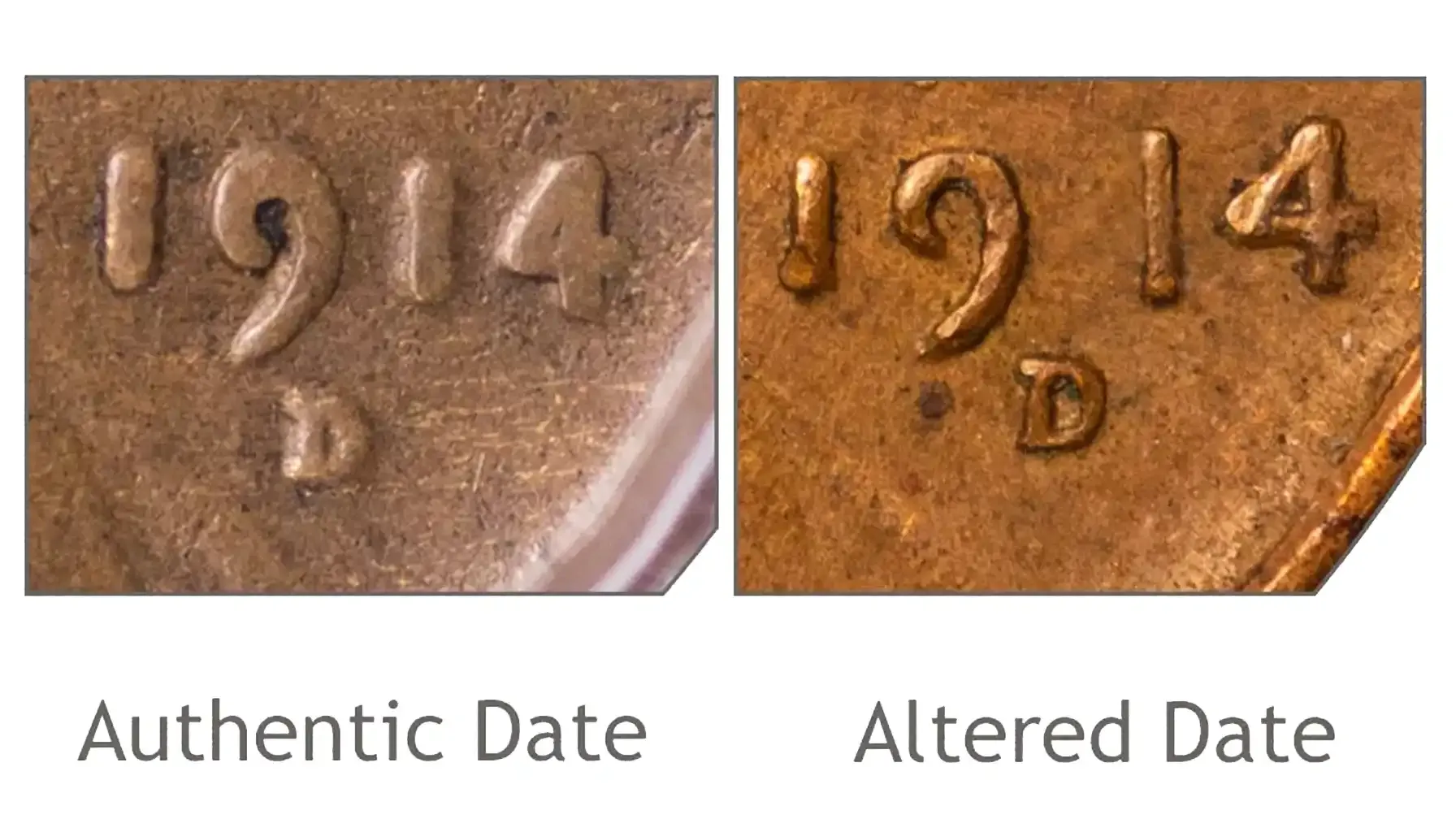
The mark D appears fuzzy or barely legible
Often appears in the center or near the date
No other signs of wear on the coin
This defect is caused by a worn mintmark punch. A faint D imprint is often an excuse for counterfeiting. If you come across a 1914-D penny for sale with suspiciously faint markings, it is worth having the coin checked by an expert.
Off-Center Strike
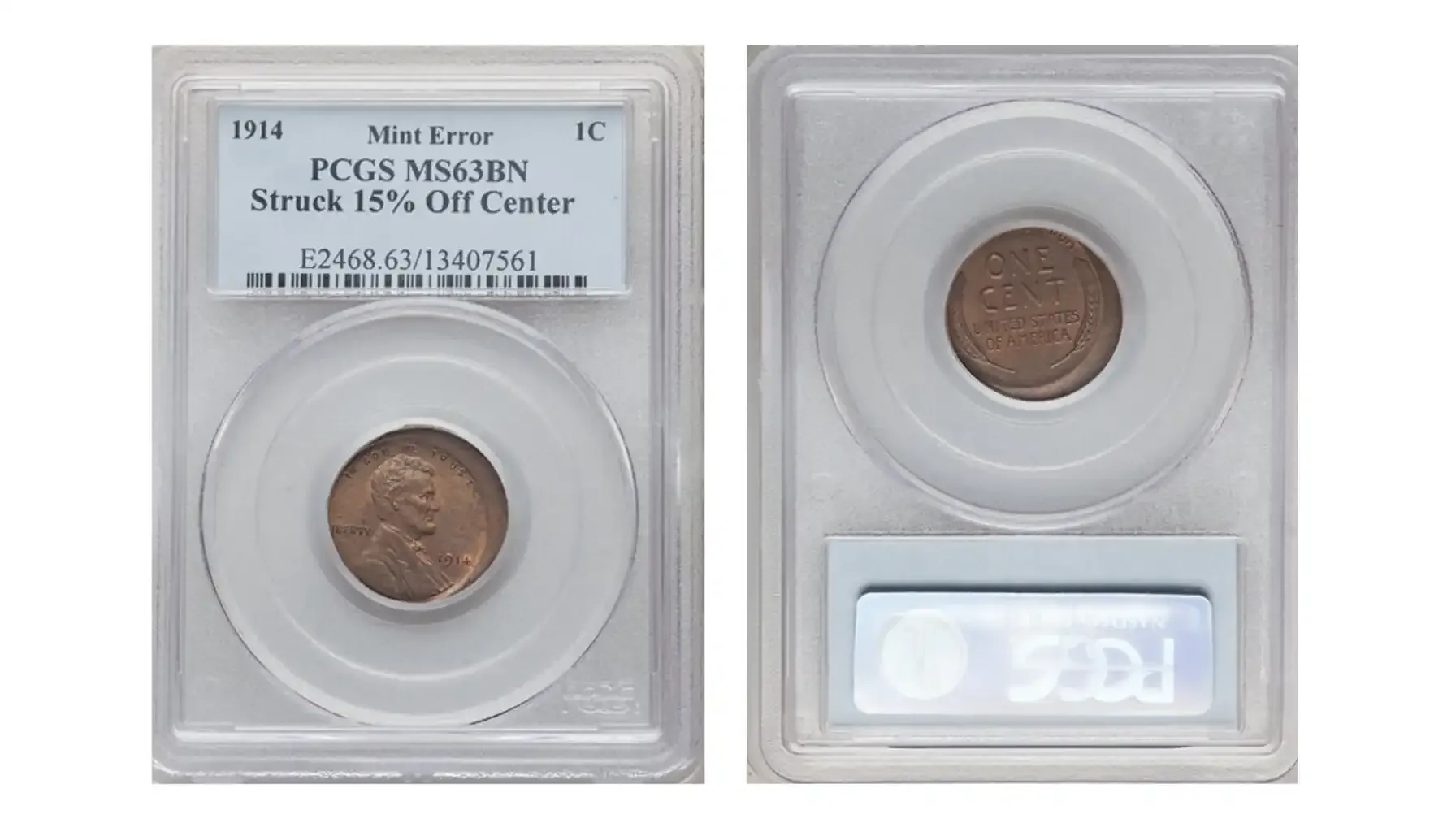
Image shift relative to the center
Uneven width of margins
Part of the inscription or portrait is missing
This error occurs when the workpiece is not correctly positioned. The shift can be partial (up to 5-10%) or significant. For 1914-D, specimens with a pronounced offset are very rare.
Rotated Reverse
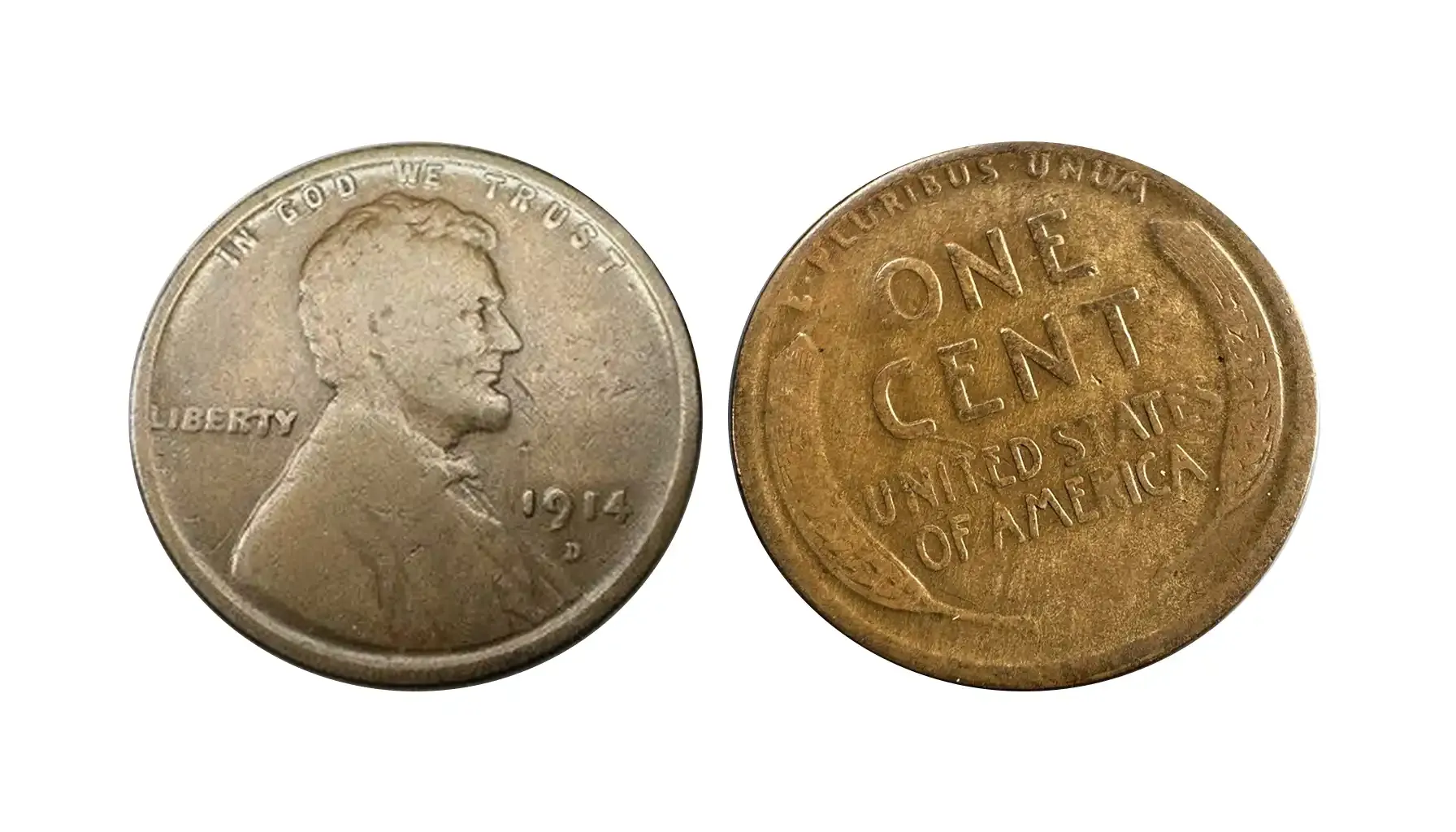
When the coin is rotated vertically, the reverse is not aligned on the axis
Rotation can be from 15 ° to 180 °
This defect is due to loose fixation of the reverse stamp. Among 1914 penny coin value such specimens are especially valuable if the angle of rotation is significant and the coin is well preserved.
Errors for 1914 Coin without Mint Mark
Die Cracks
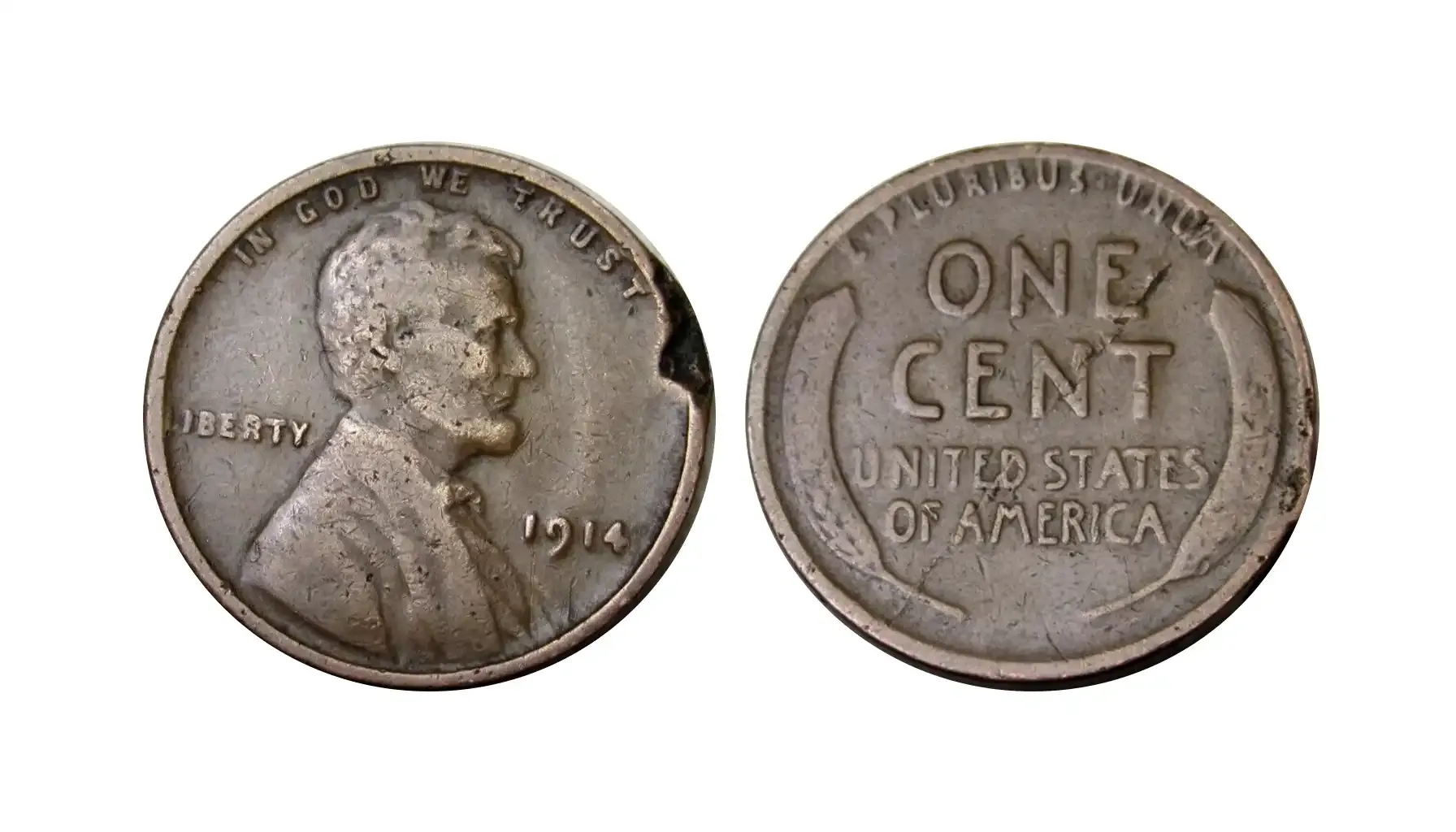
Thin lines running from the edge to the center
Most often appear around the LIBERTY inscription or the date
The surface around the crack may be raised
This defect indicates damage to the stamp. These coins are relatively common, but when combined with good preservation can increase 1914 penny no mint mark value.
Double Die Obverse
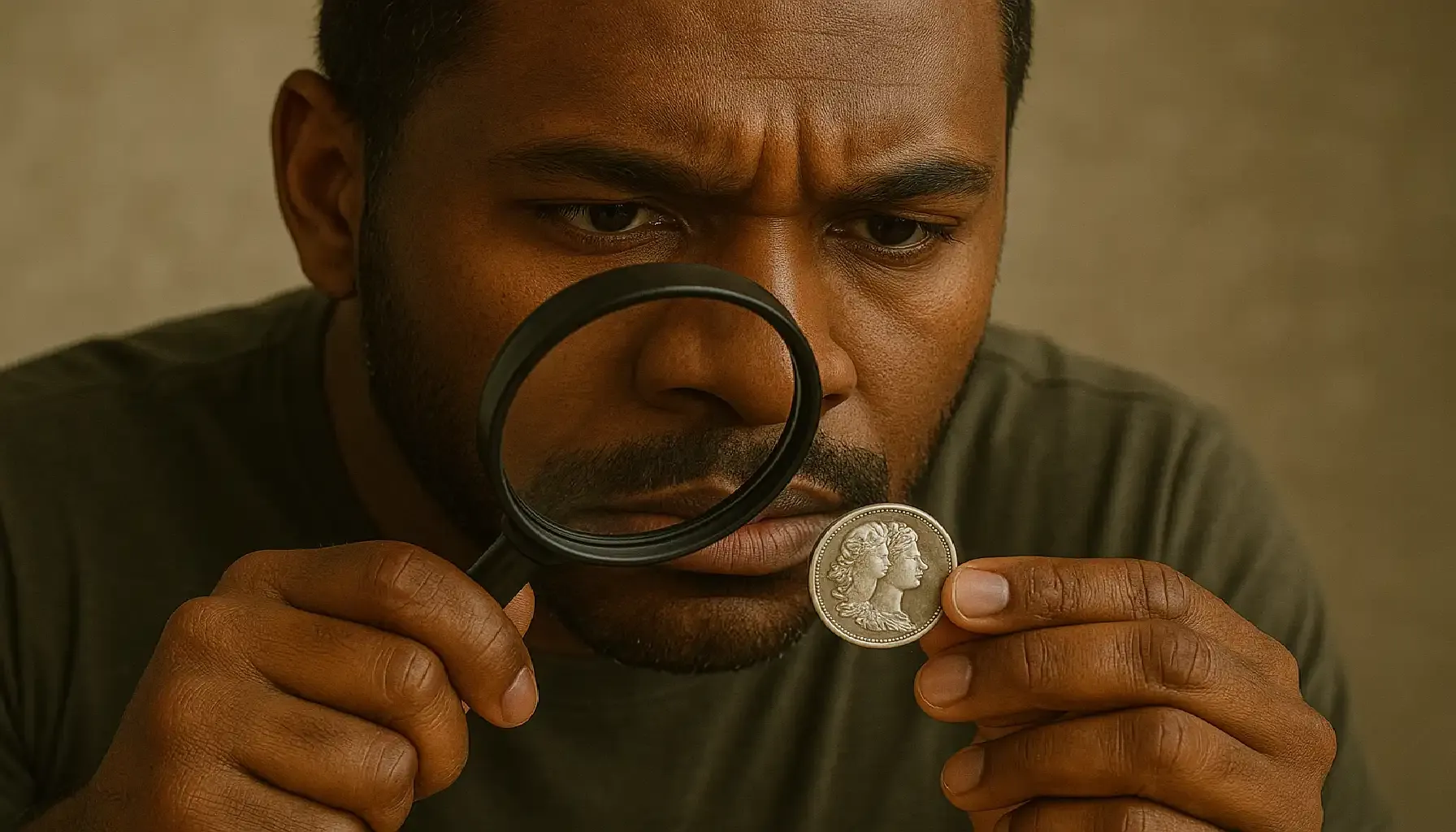
The split letters IN GOD WE TRUST or LIBERTY
Can be seen on the date of 1914.
Unlike mechanical displacement, the lines are clear and parallel.
This is a rare but confirmed error. Some specimens show clear splitting. The question of what is a 1914 penny worth in this case can mean the sum of tens or thousands of dollars.
Errors for 1914-S Examples
Cud Error
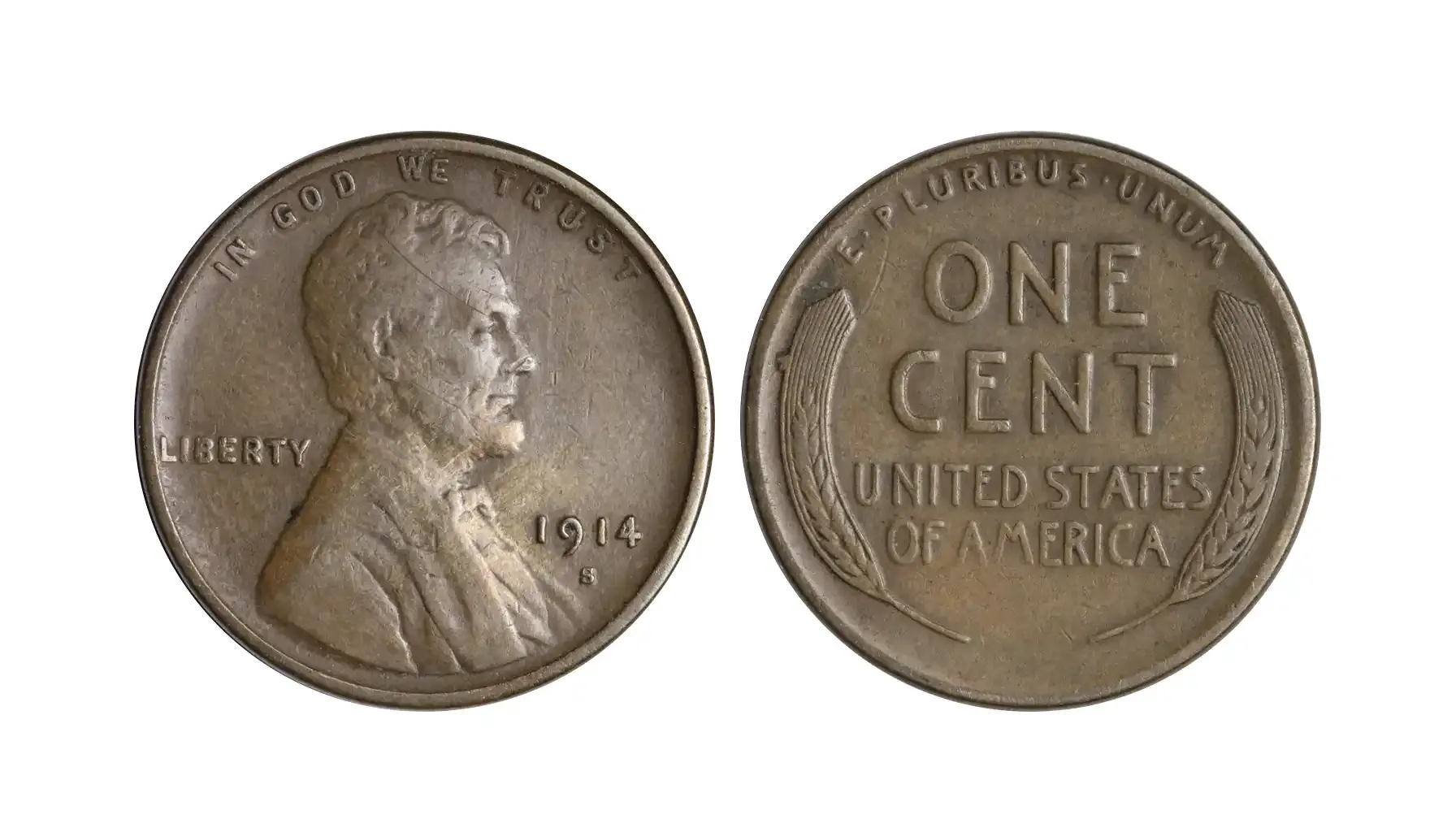
Metal thickening on the rim
An uneven edge, as if a piece of metal had “floated” onto the surface
The defect most often appears in the area of inscriptions
This is a consequence of the loss of part of the stamp. Cud-errors in 1914-S are rare. Their presence can significantly increase the 1914 S penny value, especially in combination with a high degree of preservation.
Repunched Mint Mark Error
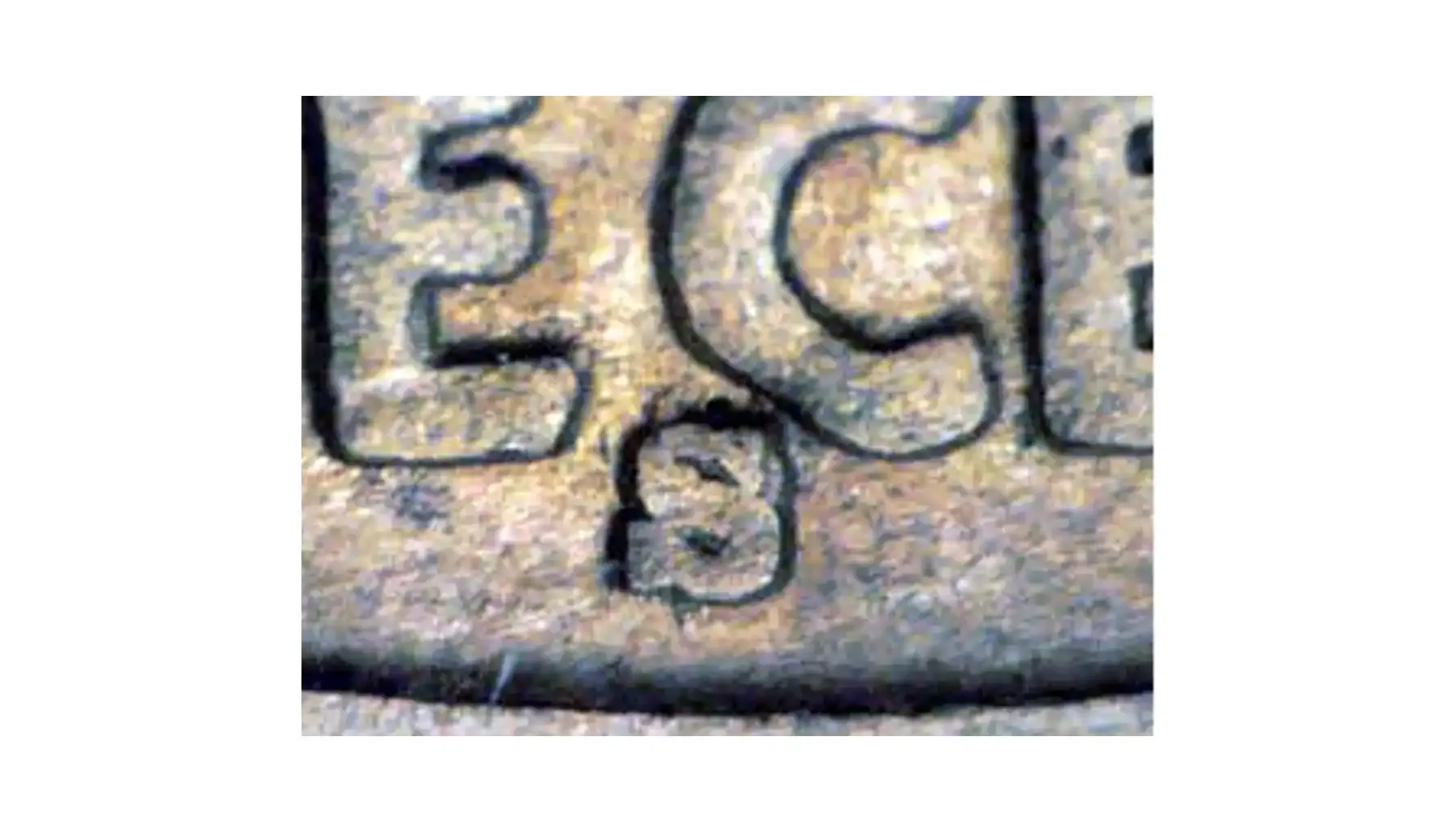
Secondary contour of the letter S is visible under the primary contour
Splitting or displacement of letters
The clarity of the marks depends on the degree of wear
This error is the result of repeated marking. Confirmed RPM copies have a significant impact on why is a 1914 penny worth so much - in MS grading such errors can increase the value several times.
Tips for Identifying Counterfeits
How to tell the difference between counterfeit “overprinted” variants
What's important to remember:
The letter D is often added to a regular 1914 coin
On fakes, the letter may be asymmetrical, in a different font or above/below the line.
A microscope will show signs of tampering with the metal structure
If you see a 1914 D penny for sale at a suspiciously low price - check the coin with a reputable numismatist. A genuine D version is rarely priced below $150 even in poor condition.
Use a proven tool - Coin ID Scanner. The app helps to quickly identify all features:
Take a photo of the coin - the system identifies it;
Then the app compares your photo with a big database of coins to provide you with details: history, design, features and even current market value of the coin.
What is more, you can even manage your collection digitally without handwritten records.
Coin ID Scanner is a handy tool to check all the basic details and 1914 penny value no mint mark or other coin worth.
How Much Is A 1914 Wheat Penny Worth In 2025?
In the table below you can see the approximate cost of all options.
Variant | Good (G4) | Fine (F12) | Extremely Fine (EF40) | Uncirculated (MS60–MS65) |
1914 no mint mark | $0.80 | $2 | $10 | $60 – $120 |
1914-D wheat penny | $180 | $300 | $750 | $1,800 – $5,500+ |
1914-S Lincoln penny | $15 | $25 | $80 | $250 – $500 |
1914-Weak D | $250 | $450 | $950 | $2,000 – $6,000+ |
1914-D off-center error | $300 | $600 | $1,200 | $3,000 + |
1914-D rotated reverse | $200 | $400 | $1,000 | $2,500 – $6,000+ |
1914 Die Crack (no mint mark) | $10 | $20 | $50 | $100 – $350+ |
1914 DDO no mint mark | $80 | $200 | $1,000 | $3,500 – $10,000+ |
1914-S cud error | $100 | $200 | $800 | $500 – $2,000+ |
1914-S RPM | $120 | $250 | $850 | up to $1,500+ |
Note: These figures are approximate, reflecting average 1914 penny value today depending on a variety of factors: level of preservation, eye appeal, rarity of a particular defect, confirmed certification (e.g., from PCGS or NGC), and demand for a particular type of error. It is recommended to obtain a professional appraisal before buying or selling.
FAQs
What is a 1914 big penny / 1914 large penny / 1914 penny large? Is it the same as the American 1914 Lincoln cent?
No, they are different coins. These terms most often refer to British currency - bronze examples with the image of Britannia, minted in the United Kingdom. These coins are larger in size and are not related to the U.S. cent. They should not be confused when grading or buying.
Why is the 1914-D penny so appreciated among collectors?
Because it is one of the rarest regular issues of the Lincoln cent. Less than 1.2 million pieces were minted, and most of them quickly entered circulation. Coins in good condition became rare (especially in original preservation without restoration).
Is it possible to accidentally find a rare 1914 piece in circulation today?
Theoretically yes, but the chance is extremely small. Most copies are long ago in collections. However, rare finds are possible - so always check old coins, especially if you see the 1914 date with a D mark.
A 1-cent coin may seem insignificant, but the 1914 Lincoln Wheat Penny is an exception (the Denver issue is especially valuable). Fakes are not uncommon, so use only reliable tools and don't be quick to underestimate a coin. You may be holding a rare and valuable artifact in your hands.

